News: This is likely the last week to order a 2024 Lunica Planner in time for Christmas! If you’re ordering as a gift for yourself or someone else, now may be the time to do it.
From the apothecary
There is a Vietnam war veteran who comes into the shop often. I won’t get into the details of his history, but needless to say he had a very tough time readjusting to civilian life after seeing the absolute darkest parts of what humans are capable of. To this day he struggles with PTSD.
As Malak Mattar, an artist living in Gaza, said a few years ago:
It’s not something that can be let go of, shaken off; it seeps into you and becomes a part of you. How can you process something that has not ended? People don't survive war, it affects your mental health.
Even those who physically survive often lose an essential part of themselves. Suicide rates among active-duty servicemen and women have risen by 80% recently, totaling more than 6,500 deaths per year.
But he is still here, and he is also an amazing wood worker with a youthful spirit and a kind heart. He told me in our first meeting how much rhodiola has helped him with PTSD. He says good quality rhodiola will instantly calm him down. I found this interesting because rhodiola is an adaptogen, and typically adaptogens work in the background. They even out the body’s stress response on a deeper level over a longer period of time. Because of this, we don’t usually feel an instant effect when taking them. Herbs with a more direct influence on the nervous system such as blue vervain, passionflower, or motherwort typically have a more immediate effect, but last for a shorter period of time.
But this goes to show how important it is to find the right herb for addressing stress, anxiety, depression, PTSD, or any nervous system disorder. Physical ailments are a bit more formulaic to address. Mental imbalances take more intuition and experimentation.
There are these more nuanced situations like with the veteran and his rhodiola that can help shape how we match an herb with a person. Over 180 studies have been conducted on the effects of rhodiola since 1960, but this plant transcends modern science.
A Greek legend states that many years ago a hero named Jason was sent to Colchis (now Georgia) to retrieve the Golden Fleece (fascinatingly, rhodiola is also called golden root), a symbol of kingship. He was ordered to pass many perilous tests to attain the Fleece including subduing two fire-breathing bulls and using them to plow and plant a field with dragon’s teeth.
This seemed like an impossible task. But Medea, a powerful herbalist and sorceress fell in love with Jason because of a spell cast by Eros and Aphrodite. She devoted herself to helping him on his quest. She called upon her patroness, Hecate, for guidance. Hecate showed Medea where to find a plant that would make Jason invincible. Medea collected this plant and ground it into a powder. This potion was called the Charm of Prometheus.
Born from the pieces of Prometheus’ liver, this plant was scattered over the Caucasian mountains during his torture by the eagles. Scholars pondered for centuries over the identity of this plant, and came to the conclusion that it must be rhodiola as its description in the epic poem comes nowhere close to any other plant that grows in the region.
{ Edit: it should be noted that rhodiola’s native habitat is in arctic climates such as Siberia and Alaska. However, it was transported by Siberians to the Caucasian mountains thousands of years ago when they traded it for fruit, garlic, honey, etc. Because of the high altitude, the plant naturalized easily and can still be found in rocky regions of the Caucus today. }
Then Jason sprinkled the dug all over himself: a mighty force entered him, inexpressible, without fear, and his two arms moved freely as they swelled with bursting strength…
This is a testament to rhodiola’s use in athletic performance too. The Soviets, in their search for supremacy, performed extensive research on rhodiola for its stamina-boosting properties.
While it is still just a theory that this mysterious herb is rhodiola, it would certainly make sense. The poem mentions not just its ability to boost endurance physically, but its ability to diffuse fear and boost mental endurance. Perhaps another reason why it is so effective for chronic mental imbalances. It gives us courage in times when we feel we have none, when a particular trauma has stolen it from us.
It stimulates the release of serotonin and dopamine in the brain while strengthening the central nervous system over time. This stimulation may account for why the veteran, mixed with his own unique physiology, experiences such an instant effect.
Rhodiola also improves cognitive function, is anti-inflammatory, and can act as either a mild anti-depressant or gentle anti-anxiety herb. This makes it ideal for people with complex trauma or TBI. It is also the preferred adaptogen of the Committee on Herbal Medicinal Products at the European Medicines Agency.
The veteran told me he wants to live to 100. I told him I’m happy to hear that, happy that he still wants to be here. He may be onto something too because scientists just finished a study that showed rhodiola increased the lifespan of fruit flies by 24%! We may not see such a huge increase as humans, but there’s something to it.
When people get stuck in those cycles, it is difficult for them to see a logical way out. If a plant can help us see that door, then to walk through it, we’ve broken the cycle, even if just for the moment.
From the forest
If you want to learn how the world perceives a people, read a textbook or look at photographs. If you want to learn the heart of a people, the soul of a people, look at their art. Look at how they interact with their land, their plants. Art is a medium for connection where plants become silent messengers.
When I took a college course in art history years ago, I noticed this little orange that kept popping up in the works of Palestinian artists. Quiet scenes in orchards, portraits of women with bowls of oranges, a symbolic orange hidden in the background. There was a story here.
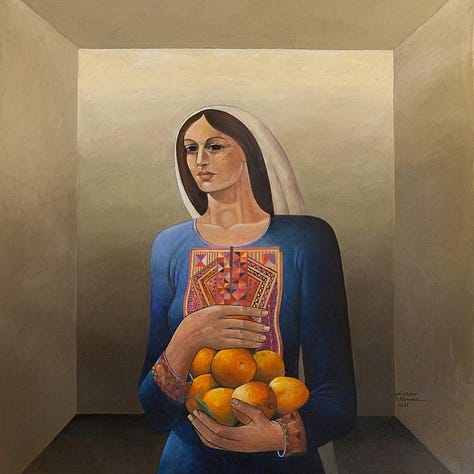
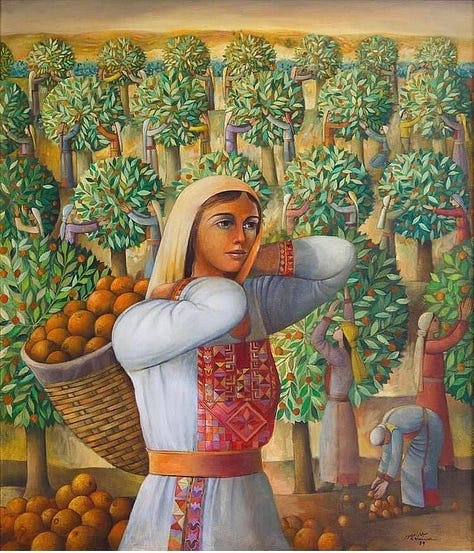
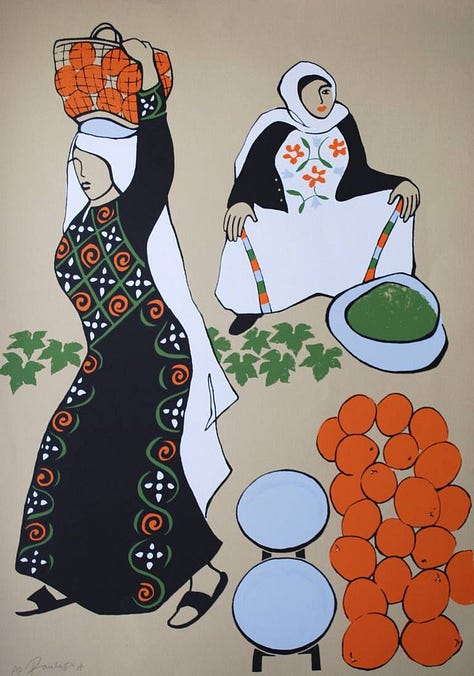
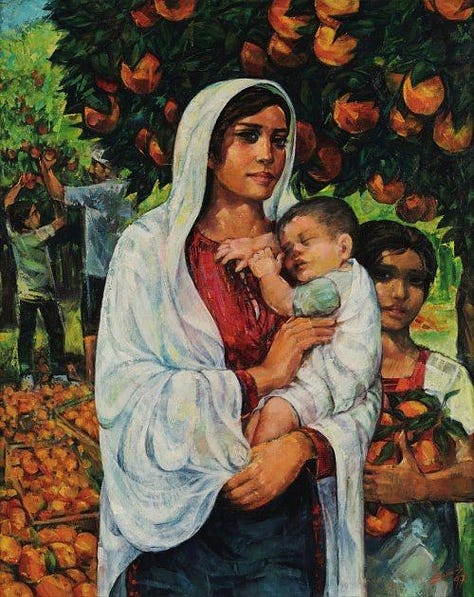
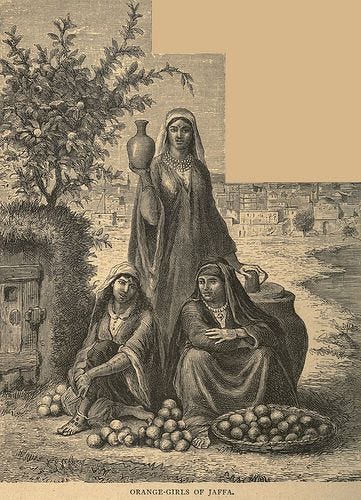
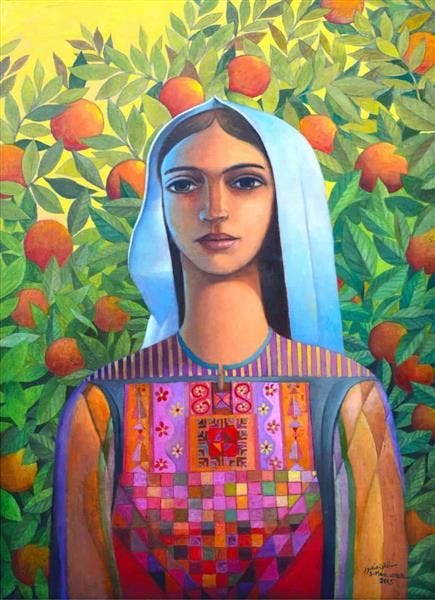
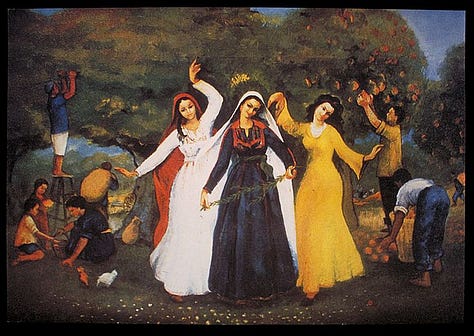
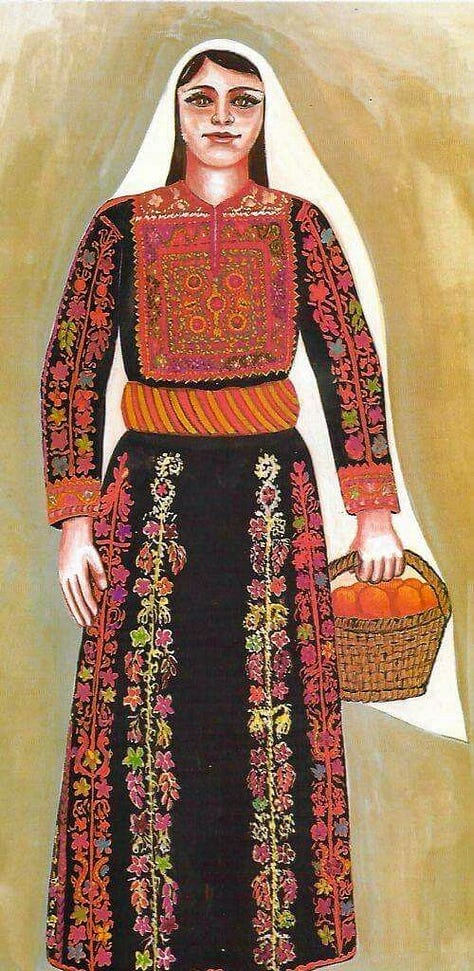
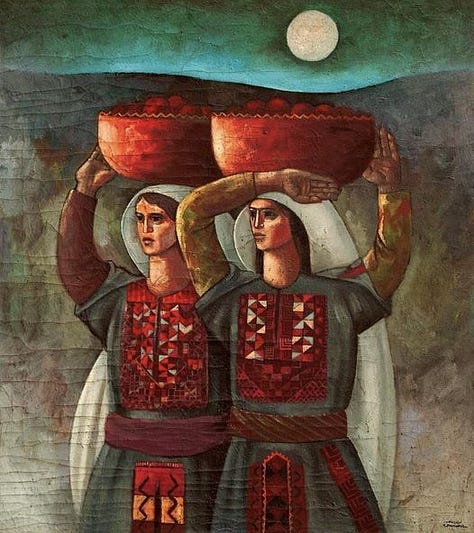
This is not just a generic orange. It is a Jaffa or shamouti orange. Its story is one of many cultural layers and tribulations. In 1498, Portuguese explorer Vasco de Gama brought the sweet orange (Citrus sinensis) to Palestine from China. The orange grew its roots deep into the city of Jaffa, often called “the gateway to Palestine”. Jaffa was a cultural crossroads that saw much trade between Africa, Asia, the Middle East and Europe.
Local Arab farmers cultivated the sweet orange for centuries, eventually developing their own breed which would become the Jaffa orange. Interestingly, most crop yields did not come from outlying villages, but from within the city itself. They had belts of walled gardens that produced substantial amounts of citrus. It was an oasis woven into urban spaces. These new Jaffa/shamouti oranges had a sweet taste and thick peel which made it ideal for exporting.
By the end of the century, orange groves became Palestine’s principal export. Over time, as Jewish refugees fled persecution in Eastern Europe, there were equal amounts of Jewish and Arab workers tending the orchards. It was common for Jewish workers to work for Arab orchard owners and vice versa. There was typical local competition, but it was peaceful. The orange became a symbol of collaboration between two peoples.
After the 1948 war however, most Arab orchards were taken over by the new Israeli state. The government claimed the Jaffa orange as a symbol of its own prosperity. Today though, the Jaffa orange represents the loss of land and culture to Palestinians.
This small fruit also reminds us that peace was possible at one time. Its existence is a culmination of brushstrokes from the hands of many cultures who crossed paths. It may be a simple orange circle in a painting, but it holds the identity of a land and its people.
In a time of such divisiveness, plants and stories like these can remind us of the humanity and creativity of a people. We are made to believe that division is the natural state of the world, but the story of the Jaffa orange shows us that it is possible for unity to be our natural state. We have to believe this, otherwise peace will always be unattainable. It is only when larger power-driven forces impose their own beliefs that the humanity within people crumbles.
Even if everything feels too big and too far away to make a difference, we can keep learning these stories. We can then share these stories in the hopes that they multiply and soften some hearts along the way. Stories give us a new set of tools to pave our way forward into this unknown path ahead of us.
Much love,
Val
If you want to move deeper into a seasonal land-based life, consider pre-ordering my 2024 edition of the Lunica Planner. Because learning to live in tune with the land doesn’t come from grand gestures or life-altering shifts, but rather from daily routines, devotions and observations of the land and how we relate to it.
This yearly planner is the love child between a farmer’s almanac and your daily lunar planner. It weaves seasonal land-based practices with modern living so that you can live more intentionally and presently within every season of your life. It was created for the plant people, the land lovers, the gardeners, and the seekers to plan their lives around the rhythms of the earth as our ancestors have for thousands of years. More than just a planner, Lunica is a practical yet spiritual guide to living, working, gardening, and celebrating in tune with the ever-shifting world around us.
Purchasing a planner also helps support this publication!
Share this post with your plant friends!
And if you’re not already subscribed to The Medicine Garden, sign up to receive more plant love directly to your inbox. No spam, just an herbalist and gardener sharing her stories.


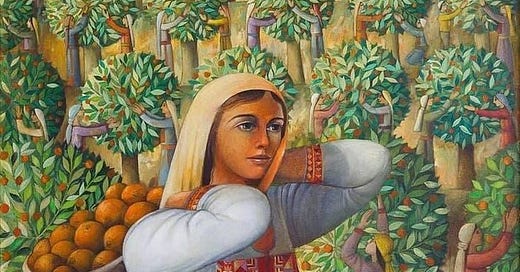


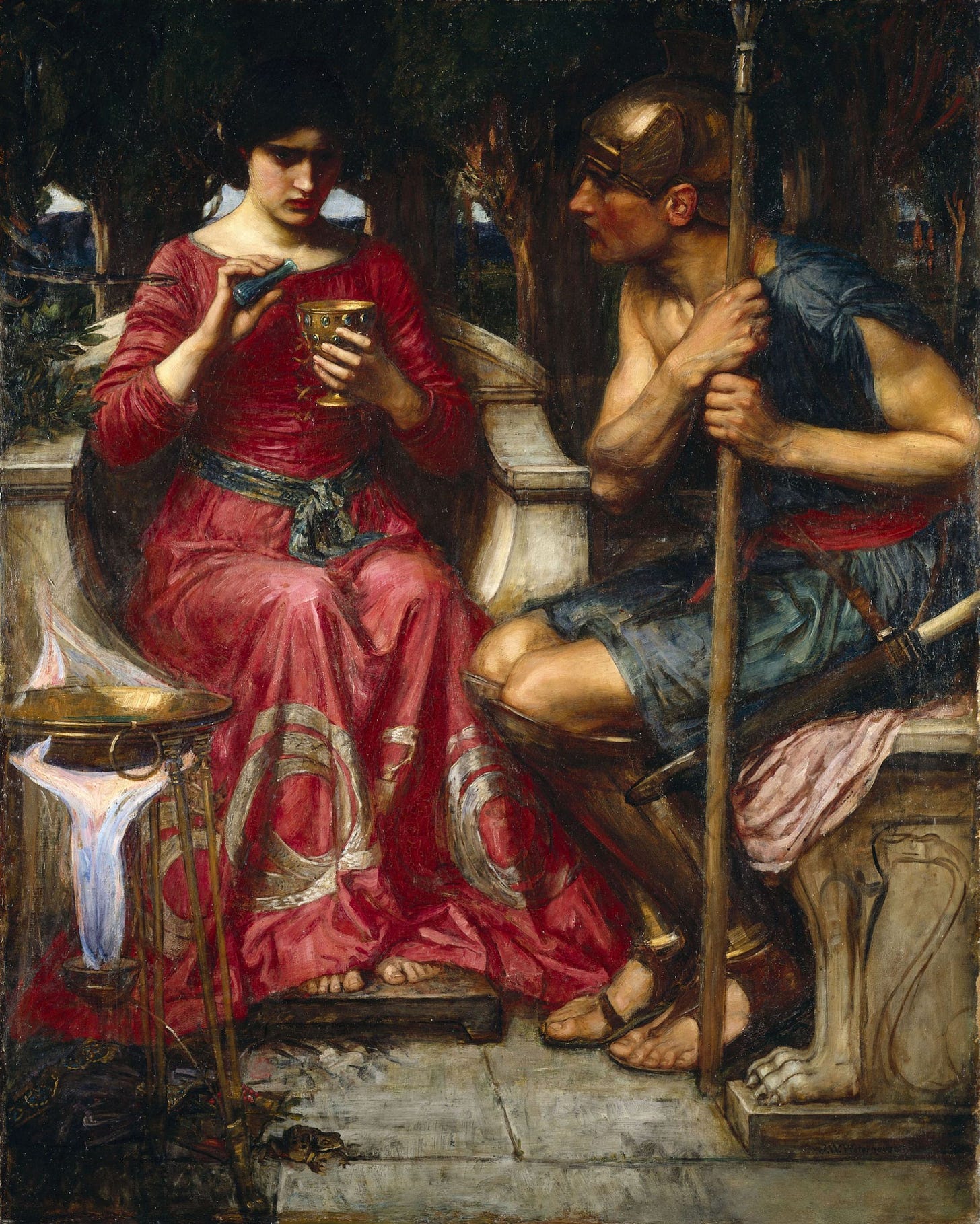
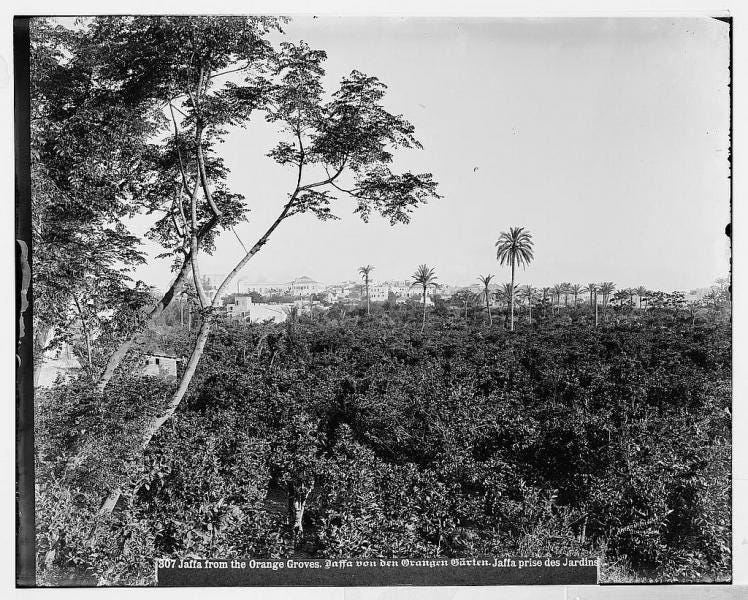
Love this <3 Particularly wowed by this insight of viewing the heart and soul of a people through their art. Oh how scrumptious of a reminder that is. And how you've welcomed the plants into that exploration as well, really beautiful. Intrigued to explore this within my own heritage. Thank you for this beautiful reflection.
This honoring of the orange tree really touched me Val. I saw Bisan post in the past few days that her breakfast in Gaza was a moldy orange, and that it is almost impossible to find citrus anywhere there right now.. I found it so moving to see you bringing those precious trees into the conversation 🧡